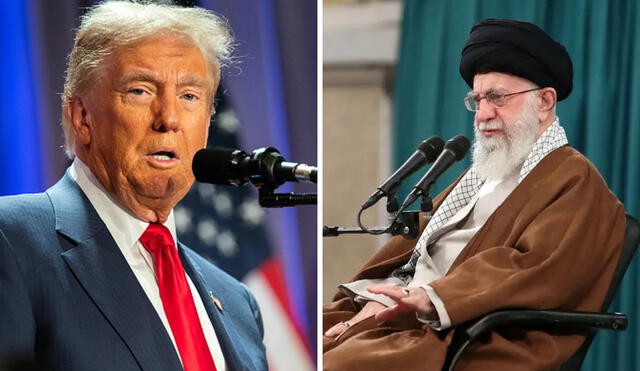Nuclear program: Why Is the United States negotiating with Iran again?
In 2018, Donald Trump withdrew the United States from the Joint Comprehensive Plan of Action (JCPOA), a nuclear agreement signed in 2015. The deal had been signed by Iran and the governments of the United States, the United Kingdom, France, Russia, and China.

President Donald Trump announces his willingness to engage directly with the Iranian government on its nuclear program, bypassing the other powers in the agreement. Trump also threatened military action if Iran does not agree to a broader agreement addressing its uncontrolled production of nuclear bombs.
According to his national security advisor, Mike Waltz, Trump wants the "total dismantlement" of Iran's nuclear program. This measure would be taken by the president to eliminate resource enrichment, weapons manufacturing, and strategic missiles.

ALSO SEE: Trump meets Netanyahu at White House as Israel seeks tariff relief, discusses Iran and Gaza hostages
Is Iran truly a country with nuclear development?
In 2003, it was discovered that Iran had secret facilities where nuclear weapons were being developed. This violated the Nuclear Non-Proliferation Treaty (NPT), an agreement signed by most countries. This treaty regulated nuclear technology in medicine, agriculture, and energy, but not in the military sphere.
Since 2018, Iran has installed thousands of advanced centrifuges, which are used to purify and enrich uranium. This treatment is necessary for the manufacture of nuclear weapons, which require 90% pure uranium.
The JCPOA stated that Iran could only possess up to 300 kilograms of 3.67% enriched uranium exclusively for civilian nuclear energy and research. However, the IAEA noted that, as of March 2025, Iran had 275 kilograms of uranium enriched to 60% purity. This represents Iran's interest in nuclear development for purposes that are, to this day, debatable.
Tensions in Israel: What would this approach mean for Israel?
Israel is another nuclear-weapons-producing country that has not signed the NPT. It has the capability to bomb Iran's nuclear facilities. However, these actions would be risky because they would lead to a response with the same destructive nuclear capabilities that would harm Israel and its allies, such as the United States and others.
Therefore, after Trump's announcement, Israeli Prime Minister Benjamin Netanyahu stated that the only acceptable agreement would be for Iran to agree to eliminate its nuclear program. "We go in, blow up the facilities, and dismantle all the equipment, under American supervision and execution."
Israel's greatest fear is that Trump will not accept a comprehensive agreement on Iran and will only seek diplomatic success. This would not bring peace of mind to Israel because the nuclear threat posed by Iran would remain.











